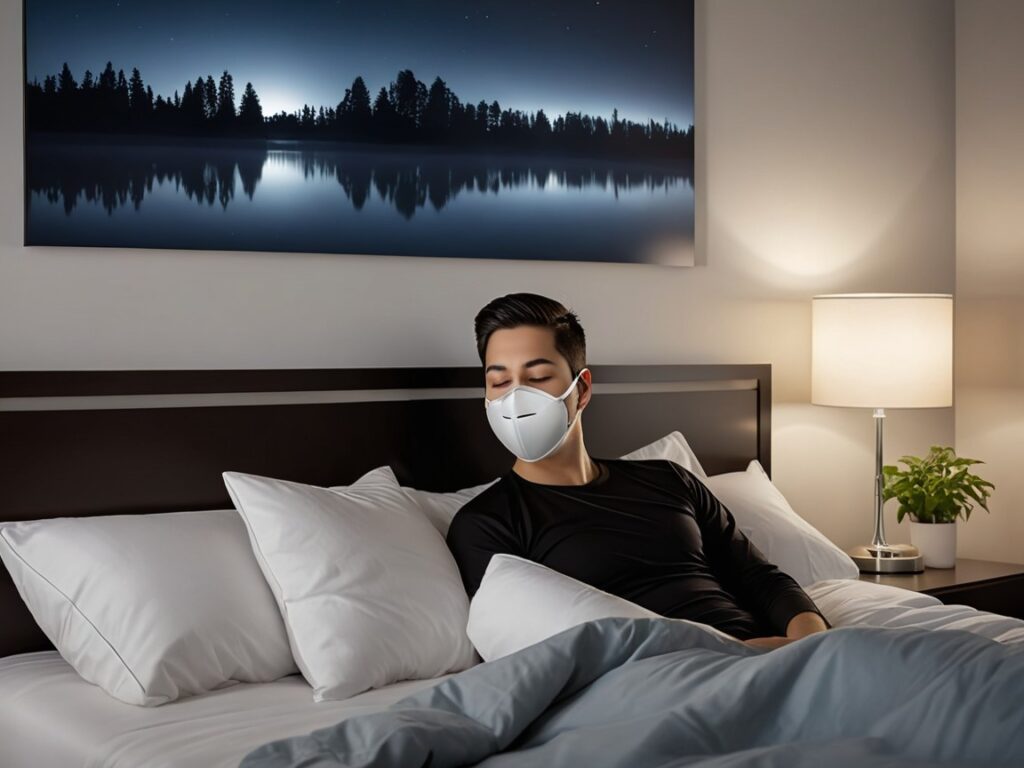
Zepbound Sleep Apnea: The Secret Causes and Cure You Didn’t Know About: The Secret Causes and Cure You Didn’t Know About
Intro:
Zepbound sleep apnea is a common disorder that impacts people of various age groups, especially those over 40. It occurs when the muscles in the throat relax excessively during sleep, blocking the airways and causing breathing interruptions. As a result, individuals with zepbound sleep apnea may experience loud snoring, fatigue, and disrupted sleep patterns. While the condition is often linked to obesity, it can also be caused by genetics, age, or lifestyle factors. Fortunately, zepbound sleep apnea is treatable with methods ranging from lifestyle changes to medical interventions like CPAP machines or surgery, depending on severity.
How Zepbound Sleep Apnea Develops
Zepbound sleep apnea develops when the muscles in the throat relax excessively during sleep, obstructing the airway. As the muscles in the throat collapse, the airway becomes blocked, preventing air from reaching the lungs. This blockage causes a brief cessation of breathing, which typically lasts between 10 and 30 seconds. Each apnea episode leads to a drop in oxygen levels in the blood, which forces the brain to briefly wake the person up in order to restore breathing. These micro-awakenings occur throughout the night and disrupt the individual’s ability to enter the deeper, restorative stages of sleep.
The condition can occur in various severities, from mild to moderate and severe, depending on the frequency of the apneas. Individuals with zepbound sleep apnea may experience symptoms such as loud snoring, choking, gasping for air during sleep, and excessive daytime fatigue. Those most at risk include people with obesity, older adults, and individuals with certain anatomical features, such as enlarged tonsils or a thick neck.
The Causes of Zepbound Sleep Apnea
Several factors contribute to the development of zepbound sleep apnea. The most prominent cause is obesity, with excess fat around the neck and throat putting pressure on the airway, leading to its obstruction. According to the American Sleep Apnea Association, approximately 60% of people with sleep apnea are obese, making this a critical risk factor.
Genetics also plays a significant role in zepbound sleep apnea. Research indicates that individuals with a family history of sleep apnea are more likely to develop the condition themselves. Additionally, certain anatomical features, such as a narrow airway, large tongue, or large tonsils, can predispose individuals to obstructive sleep apnea.
Other lifestyle factors, such as alcohol consumption, smoking, and sedative use, increase the likelihood of developing zepbound sleep apnea. Alcohol and sedatives relax the throat muscles, making airway collapse more likely. Smoking exacerbates the condition by causing inflammation and fluid retention in the upper airway.
Treatment and Solutions for Zepbound Sleep Apnea
Zepbound sleep apnea can be managed with several treatments, ranging from lifestyle changes to medical interventions. The first-line treatment for moderate to severe cases of sleep apnea is Continuous Positive Airway Pressure (CPAP) therapy. A CPAP machine delivers a steady stream of air through a mask to keep the airway open during sleep. CPAP therapy is highly effective, but many users find it uncomfortable, making adherence to treatment a challenge.
For individuals with mild zepbound sleep apnea, lifestyle changes can be beneficial. Losing weight, avoiding alcohol and sedatives, sleeping on one’s side, and quitting smoking are all effective ways to reduce the frequency of apneas. In some cases, dental appliances designed to reposition the jaw can also help keep the airway open.
In more severe cases, surgical options may be required. Surgical treatments include removing excess tissue from the throat, repositioning the jaw, or even implanting a device to stimulate the muscles of the airway. These procedures are typically recommended when CPAP therapy is ineffective or uncomfortable.
Homemade Solutions and Lifestyle Adjustments
While medical treatments like CPAP therapy and surgery are highly effective, there are several homemade solutions and lifestyle changes that can help manage the symptoms of zepbound sleep apnea. One of the most commonly recommended changes is sleeping on the side rather than the back, as this position helps prevent the airway from collapsing.
Another effective lifestyle change is weight loss. Research indicates that even a modest reduction in body weight can significantly reduce the severity of sleep apnea. Avoiding alcohol, sedatives, and heavy meals before bedtime can also help alleviate symptoms. For some, herbal remedies such as chamomile tea or using a humidifier in the bedroom can promote better sleep quality.
It’s important to note that while these remedies may help reduce symptoms, they should be used in conjunction with medical treatments for optimal results. Always consult a healthcare professional before relying solely on home remedies.
Conclusion
Zepbound sleep apnea is a treatable condition with various medical and lifestyle solutions. By understanding its causes and implementing appropriate treatments, individuals can improve their sleep quality and reduce associated health risks. Let” ‘s go, if you like my blog, please share it and also comment. Share your opinion with me. You can visit my website for more blogs and let me know how you found it.
.